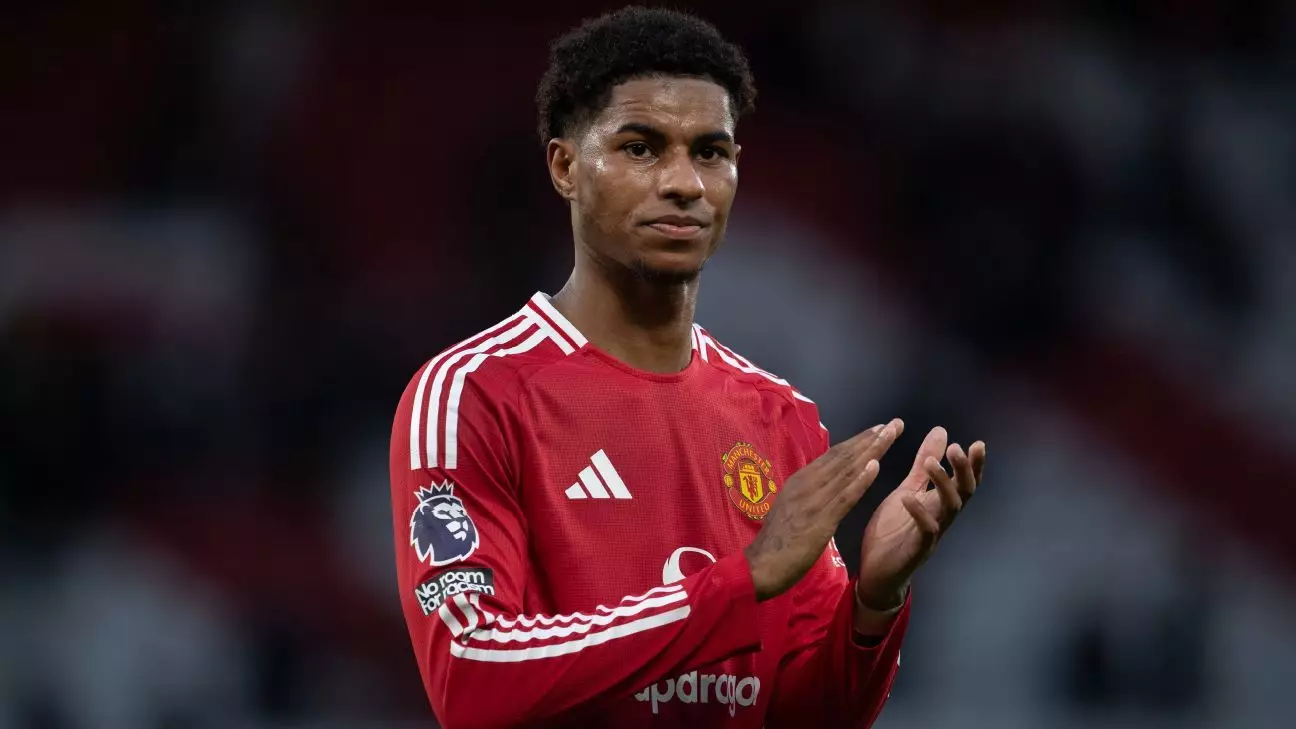Marcus Rashford’s return to the Manchester United squad after a four-game absence is a pivotal moment for both the player and the club. The forward has not found himself on the pitch since the Europa League victory against Viktoria Plzen on December 12. His exclusion coincided with a tumultuous period for the team, including a notable loss to local rivals Manchester City and defeats against Tottenham, Bournemouth, and Wolverhampton. Rashford’s lack of appearances reflects pivotal issues within the squad and raises questions about management decisions under head coach Ruben Amorim.
Ruben Amorim’s decision to drop Rashford from the squad for the Manchester City game has been particularly scrutinized. The head coach indicated that the decision stemmed from concerns about Rashford’s training performance, suggesting that his commitment and form were not where they needed to be. This narrative manages to strike at the heart of Rashford’s role and expectations at United. As a player of considerable talent and past achievements, his sporadic involvement raises an important point about consistent high-level performance that modern football demands.
Rumors of Departure and Club Dynamics
In the aftermath of his exclusion, Rashford openly expressed his desire for a “new challenge,” leading to rampant speculation about his future at the club. This candid admission has placed added pressure on Manchester United as they navigate the complexities of squad stability and player ambitions. While Amorim stated his desire to retain Rashford—implying a belief in his value to the team—club sources revealed that the organization remains open to potential offers during the January transfer window. This duality encapsulates the culture of professional football, where clubs often find themselves at a crossroads between player development and immediate competitive needs.
The implications of Rashford’s return are magnified by disciplinary actions affecting key players, specifically Bruno Fernandes and Manuel Ugarte, both of whom are suspended for the upcoming match against Newcastle. Fernandes’ red card against Wolves and Ugarte’s accumulation of yellow cards have left significant gaps in United’s lineup. Rashford’s reintroduction offers much-needed depth to a squad facing adversity, highlighting a complex dynamic where individual player situations directly impact team strategy.
Rashford’s Future Outlook
As Rashford sits back on the bench for the upcoming clash against Newcastle, one can’t help but ponder the multifunctional role he plays. His presence is not merely about filling a position but rather reflects larger themes of resilience, performance assessment, and the shifting narrative of a storied player facing challenges amidst high expectations. Whether Rashford’s future lies at Manchester United or elsewhere remains uncertain, yet, as he stands poised for reintegration, the collective focus shifts to deliverables on the pitch and the overarching quest for glory as a member of this iconic football club.

